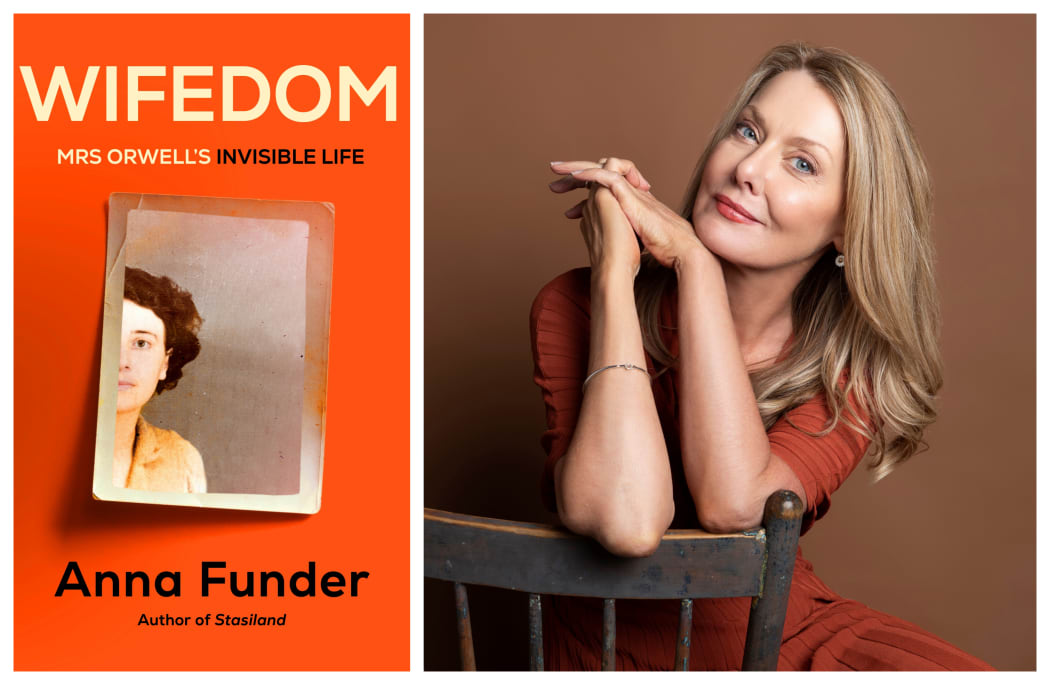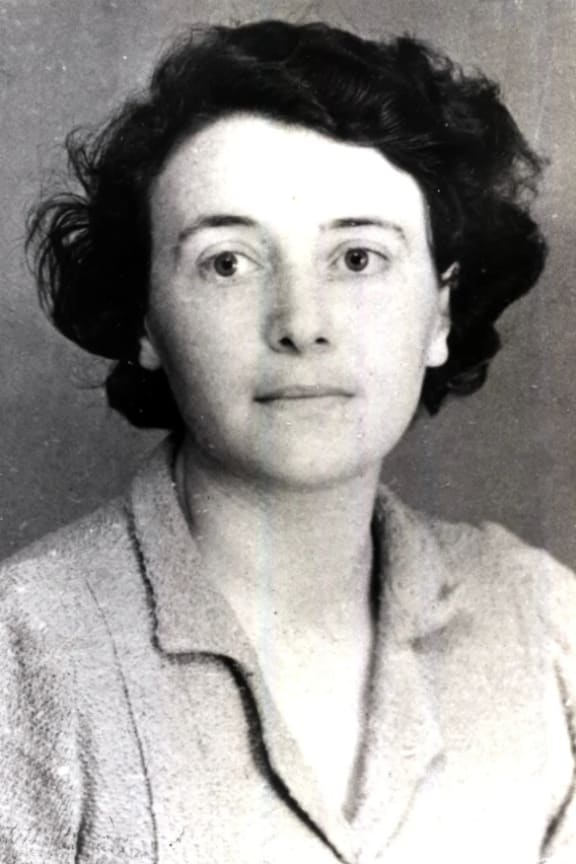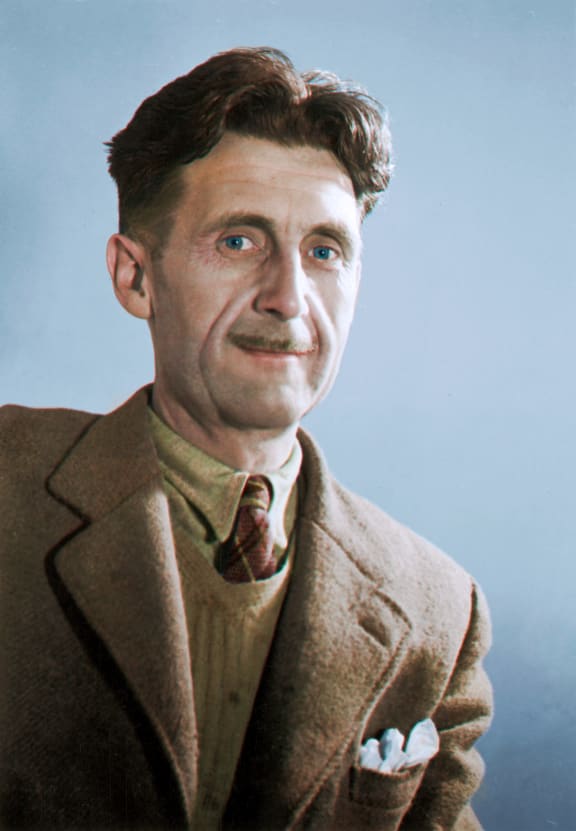A new book on George Orwell’s wife Eileen O'Shaughnessy reveals a darker character than existing biographies would have us believe.
The idealistic Orwell was also a misogynistic, homophobic, and a sadistic philanderer, author Anna Funder says.
Wifedom rewrites the life of her literary hero George Orwell to put a main character back in the story.
Funder reveals the importance of his wife, Eileen O'Shaughnessy, by blending forensic research, fiction, life writing and criticism.
O'Shaughnessy’s financial and practical support allowed Orwell to write, and her own literary talent shaped his work, particularly on Animal Farm.
Written over six years, the idea for Wifedom came after the discovery of six letters in 2015 from O'Shaughnessy to a friend, their contents contrary to all the biographies written on Orwell.
“The first letter is written six months after they were married, and they're living in this tiny, dilapidated cottage with no electricity and one tap in a village outside of London.
“At the end of that year, 1936, they go to visit his parents, and she sits down to write to her best friend, and she says, ‘Dear Nora, I'm sorry It's taken me so long to write to you. But we have quarrelled so continuously, and really bitterly since the wedding, that I thought I'd just write one letter to everyone, once the murder or separation was accomplished’."

Photo: supplied
Orwell's misogyny, and virulent homophobia
“William Empson, the critic, after Orwell dies, was interviewed and said; ‘We were bewildered by his homophobia’.
“Empson said ‘when we were younger, those of us who loved the workers did it practically.’
“So, there was this kind of sotto voce acknowledgment of homosexuality in this world of Eton.”

Photo: Commons
Why delving into Orwell’s private life was necessary to properly tell O'Shaughnessy’s story
“I realised that if I didn't go into what we call in patriarchy, a man's private life, I wouldn't be able to find how his wife lived, because that was where she lived.
“And she lived in a way where she was doing enormous amounts of intellectual work, typing and editing and amending all of his work, which the biographers say mysteriously got much better after his marriage.
“But she would also have been dealing with the emotional pain really, of knowing, because he wanted her to know, that he was off with other women - frequently.”
On O'Shaughnessy’s acute perceptiveness
“She was enormously clever about people. She said things like, he had a remarkable political simplicity, something that one of the biographers had trouble with, and just changed her words, to read that Eileen said, he had a remarkable political ‘sympathy’ instead.”
On Orwell’s notion of “decency”
“Decency was a core Orwellian value, in 1984, it's the value he sees in the proles, as he calls the working class, which he thinks is going to save us from tyranny, this innate decency, that's a quality I'm very interested in, as well, it's a slippery term, it can mean many things.
“But for a man to be decent, he can be one thing in public. And in his private life, he can behave in ways that are exploitative, or violent, or unseeing.”
On Orwell’s experience in Burma and the “double-think” of colonialism
“He recognised there that white men consider themselves to be decent fellows all the while viciously treating the local population in Myanmar (Burma).
“And he said, in 1984, this idea comes to fruition where he calls it double-think, he says, you have to hold two things in your mind at the same time, all the while keeping one of them below consciousness.
“Because if it rose to the level of consciousness, for instance, that colonised people are worth exactly the same respect as white people, it would result in a form of guilt.”

George Orwell Photo: BY 2.0
Women being largely absent in his work
“There were a lot for women in his life, but he doesn't ever write about them, he doesn't really write female characters that come to life.
“Animal Farm is the only book, and that's one she [O'Shaughnessy] worked on very, very closely with him during the war, you have female characters who come to life - albeit as animals.
“So, there is a very sort of curious omission in that very closeness to women and needing them intellectually on a day to day basis, but yet not really being able to see them as people and represent them in his work.”
On why Orwell’s Homage to Catalonia, the brilliant memoir where he recounts his time in Spain fighting with the POUM against the Fascists barely mentions his wife, who was also there, almost certainly saved his life on one occasion and cared for him in the trenches when he was shot.
“At the end of her time in Spain, she had to, at great danger to herself when the Stalinists were arresting and imprisoning and killing all the people in this little left-wing party, because Stalin didn't want the revolution in Spain to succeed. He didn't want any left-wing revolution in Europe that he didn't control.
“They were being hunted by Stalinists and Orwell went out into the streets to hide and go undercover with others. And she stayed in the hotel, she wouldn't be on the run as well, in case he came back she could tell him to disappear again.
“And she also goes into the police prefecture, which, from which six men had been sent in a dawn raid, to search her room while she was in bed not long before, and she has to go into that police prefecture to get the stamps in their passport that they need to sneak out of Spain.
“So, she really saves his life at least once by doing that Also, when he's shot, she went to the front and cared for him. But none of that appears in this book. “
On Orwell being obtuse towards what was going on in the minds of those nearest to him, and how O'Shaughnessy can be seen to counterbalance this character flaw
“When you look at his work, he's much less interested in character than he is in the political situation and the mechanisms of power, both in Animal Farm and in 1984, particularly 1984, which he wrote, after the marriage was over, Animal Farm has much better drawn characters, because Eileen was deeply involved in that book.”
On why Orwell, who is described by a woman to Bernard Crick, the author of one of six biographies about Orwell, as a sadist but neither his nor any other biography mentions this.
“It's obviously very difficult and painful information to have as a biographer who clearly loves his subject. And it's quite difficult to integrate that into a portrait of a decent man. Because it's the opposite of decency.
“But I would have thought it was very important as well. And those sorts of omissions in the biographies started to form a pattern for me, because there are many of them.
“And eventually, I thought, well, these biographies are kind of fictions of omission. They create a portrait of a man by leaving out a great deal of difficult information, most often, from or about women.”

